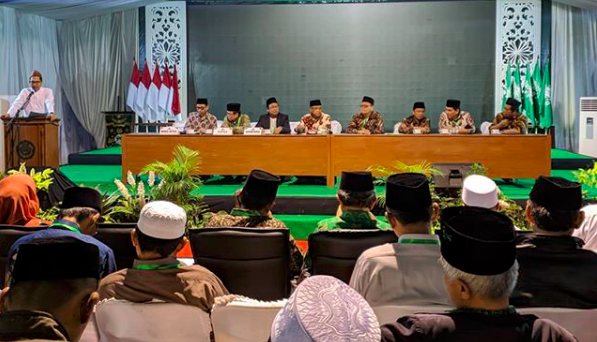Nahdlatul Ulama (NU), Indonesia and the world’s largest Muslim organization, is widely seen in contemporary political and religious contexts as the bastion of moderate Islam in Indonesia as well as the country’s leading voice in speaking out against religious extremism. The Islamic organization is also among the most sensitive towards respecting the rights of non-Muslims, with their leaders recently calling for an end to the use of a contentious term used to refer to those who are not followers of Islam.
During a national conference of NU ulema (Islamic scholars) in Banjar, West Java, yesterday, the organization called for the end of the use of the word kafir — which literally means “disbeliever” or “infidel” and is considered by some to be carrying derogatory or discriminatory connotations — to describe non-Muslims Indonesians.
“[The word] may contain elements of theological violence, that’s why clerics respect the idea of not using the word ‘kafir’ and replacing it with ‘muwathinun’, meaning citizen. That way their status is equal to all of the nation’s other citizens,” conference leader Abdul Moqsith Ghazali said, as quoted by Tempo.
“Giving the label kafir for Indonesians who take part in the design of Indonesia as a nation is not wise.”
However, Abdul said that the idea is still in its early stages and will not be tabled for official discussion at this year’s conference. That said, it’s still possible that NU could, in the future, file an official recommendation to the government to eradicate the discriminatory term from the Indonesian lexicon.
President Joko Widodo’s running mate in April’s election, Ma’ruf Amin, holds the influential position of Rais Aam (Supreme Leader) at NU, meaning that, should they get elected, NU could have a strong influence over the government when it comes to the passage of public policies on issues like this.
Indonesia does have history of attributing certain persecuted groups with derogatory terms and having the government reverse discriminatory identity-based policies. In 1967, under the New Order regime, President Soeharto banned the words Tiongkok and Tionghoa to describe Indonesians of Chinese descent, only allowing them to be referred to by the derogatory term Cina. In 2014, President Soesilo Bambang Yudhoyono reversed the decades-old racist policy.




